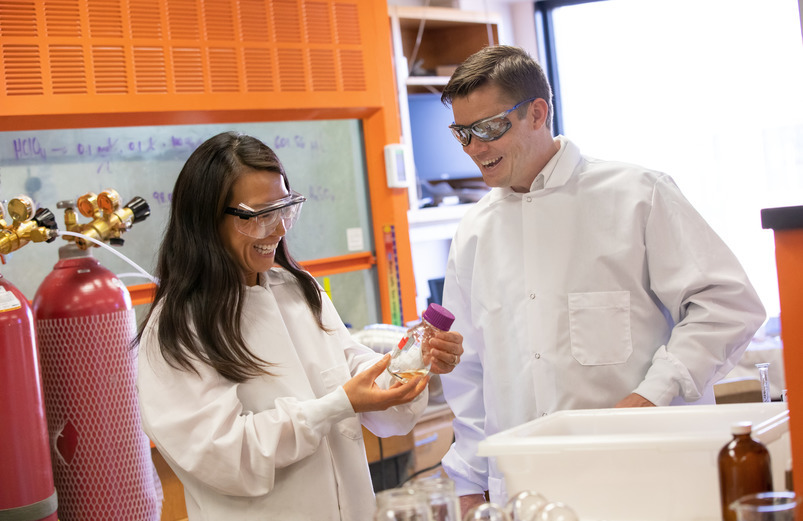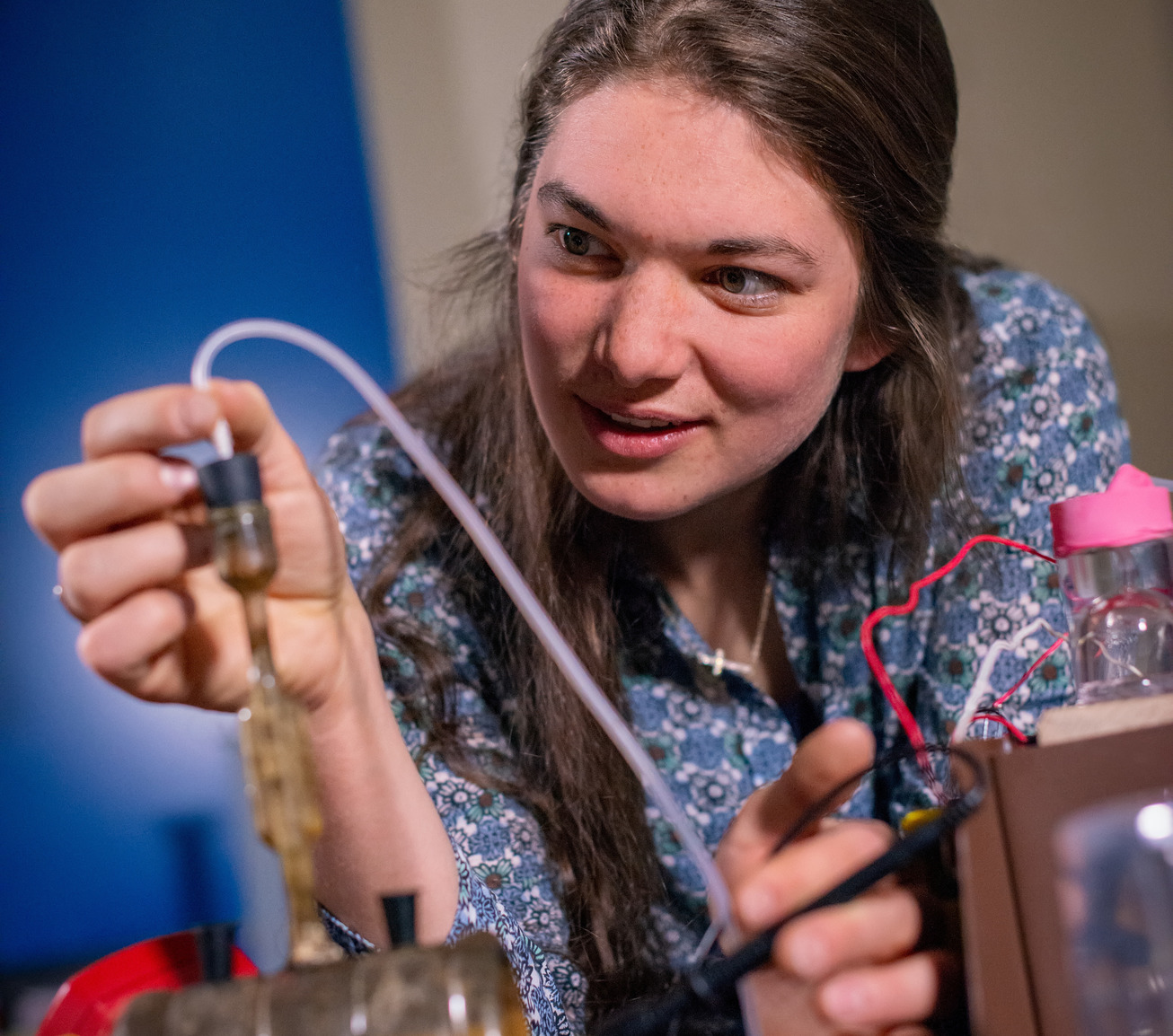UW's Chemical Engineering PhD Degree
Located in Laramie, Wyoming, a state known for its fossil-fuel resources, UW houses
faculty with expertise in coal conversion technology; carbon capture, utilization
and storage; and extraction and production of subsurface resources. Moreover, Chemical
Engineering offers interdisciplinary research opportunities in bioengineering, material
science and mathematical modeling related to permeable media. You will have the opportunity
to work with highly regarded researchers studying permeable media, microfluidics,
process control as well as those working on the cutting edge of biomaterials and nanomaterials
among other areas.
The Chemical Engineering Ph.D. program allows you to immerse yourself in research
while also amassing strong foundational knowledge in chemical engineering. The collegiality
at UW makes it possible to collaborate across departments and access the vast laboratory
and equipment resources available at the University.
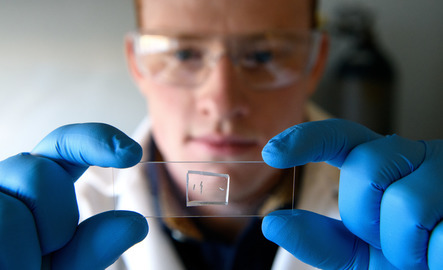
Avail yourself of UW’s remarkable facilities. UW harbors a treasure-trove of laboratories and facilities with leading-edge equipment and support that include the following:
- The High Bay Research Facility. This is a 90,000-square-foot research space with high-bay and traditional laboratories that emphasize unconventional oil reservoir research, including the Improved Oil Recovery Laboratory.
- Advanced Research Computing Center. A UW facility that assists students, faculty and staff with computational aspects of their work.
- Stable Isotope Facility. This facility offers isotopic analysis for UW students and faculty researchers.
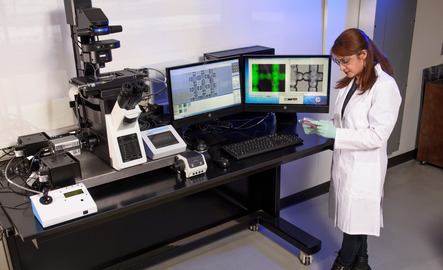
Our program requires a total of 72 credit hours, with 42 hours dedicated to coursework
and 30 hours focused on research. In addition to completing the required coursework,
students must pass a preliminary examination and defend their dissertation. Successful
completion of the program also includes the publication of the dissertation.
Need to speak with our program?
Get in touch with us today!
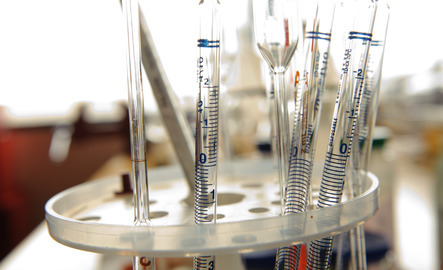
What Can You Do With a Chemical Engineering Doctoral Degree?
The University of Wyoming doctoral program in chemical engineering provides the training and research experience necessary to move into post-doctoral work, faculty jobs and leadership roles in the industry. Graduates are prepared for careers as university professors, principal investigators, R&D leaders and technical consultants across sectors like energy, biotechnology, advanced materials and environmental engineering, as well as for roles shaping science policy and innovation strategy.
Our chemical engineering Ph.D. alumni have worked at the following organizations:
- Intel Corporation
- Beijing Institute of Petrochemical Technology
- National Institute of Clean and Low Carbon Energy (Beijing, China)
- Pacifica Northwest National Lab
- Purdue University
- MilliporeSigma
A Ph.D. in chemical engineering opens the door to a variety of careers, including:
- University professor
- Postdoctoral researcher
- Principal investigator at national labs
- R&D manager or director
- Process development engineer
- Technical consultant
- Industrial research scientist
- Startup founder or entrepreneur
- Science and technology policy advisor
- Environmental or energy systems engineer
Chemical engineers are hired by a wide range of organizations across multiple sectors, including:
- Chemical and petrochemical companies
- Pharmaceutical and biotech firms
- Energy and renewable energy companies
- Consumer goods manufacturers
- Food and beverage companies
- Semiconductor and electronics manufacturer
- Environmental engineering firms
- Government agencies and national laboratories
- Engineering consulting firms
- Universities and academic research institutions
Earning a Ph.D. in chemical engineering opens doors to advanced careers in research, innovation and leadership that go beyond what’s typically available with a bachelor’s or master’s degree. It prepares you to lead cutting-edge research in academia, national labs or industry, teach at the university level and solve complex global challenges in areas like energy, sustainability, biotechnology and advanced materials. A Ph.D. also gives you the credentials to direct R&D teams, influence science policy and pursue entrepreneurial ventures. For those passionate about pushing the boundaries of science and engineering, it’s a gateway to some of the field’s most impactful and intellectually rewarding opportunities.
UW Professor Advances Clean Energy Tech
UW Professor of Chemical Engineering Katie Li-Oakey and her team were among 20 semifinalists to present to top venture capitalists at a Department of Energy Chain Reaction Innovations competition. The team’s supercapacitors — devices for energy storage and release — were produced from coal using a zero-waste process.
